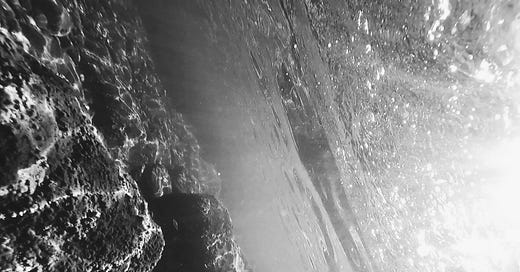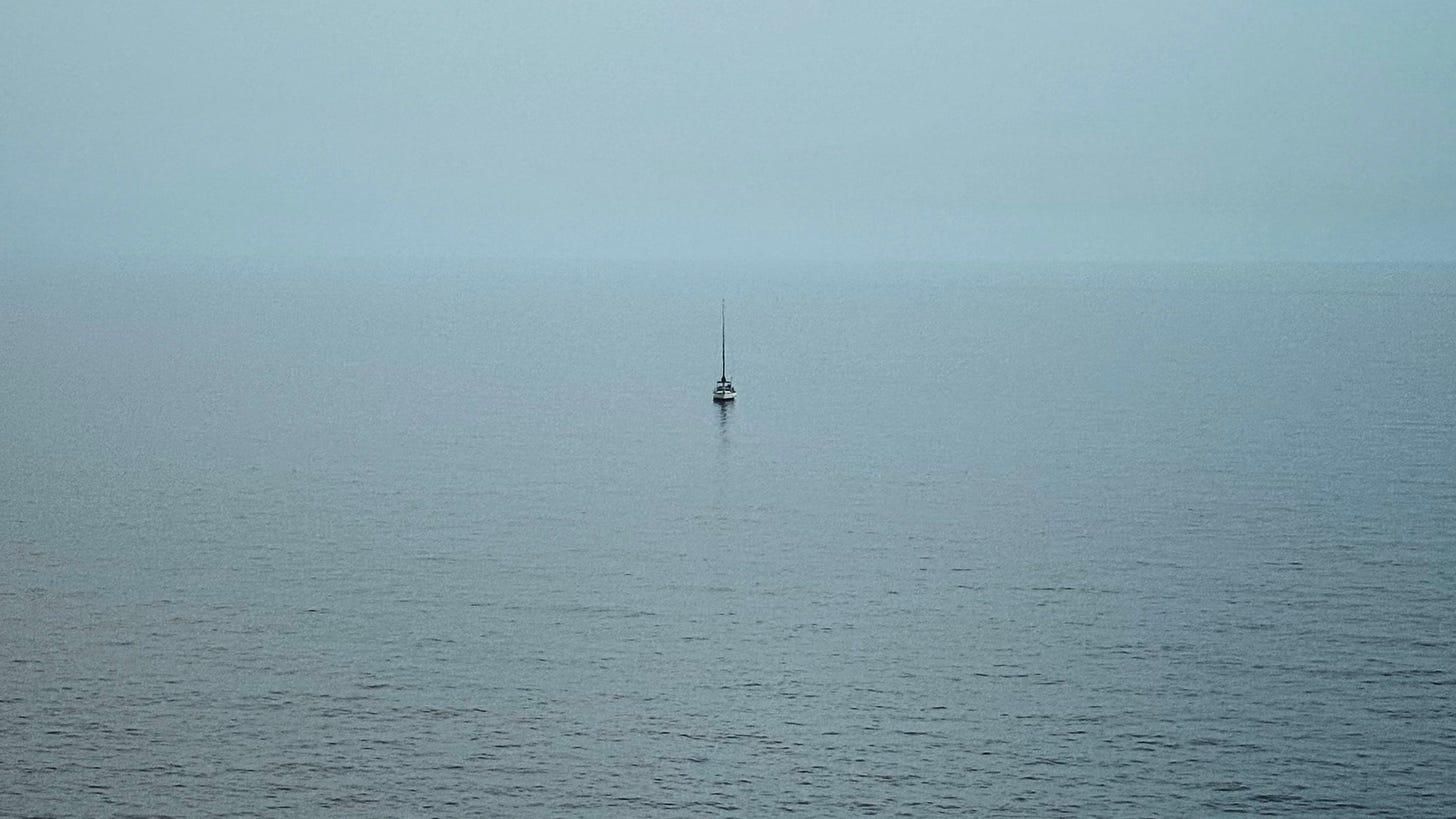A collection of short essays approaching the intersection of fiction and document.
1.
Yesterday a boat came into the bay, a small yacht, a twenty-five, maybe thirty footer, single mast, sails furled. It drifted some distance from the shore, too far out to see anyone aboard. I thought, perhaps, it had came of its own accord. Perhaps, perhaps it had come for me. On a lonely day like this I began to think it probably had. I considered swimming out to meet it, to raise its sails, take it round the headland or let it take me as far as wherever next might be. As the town’s lights came up in the evening haze, the boat remained, contained in watercolour darkness, giving only further credence to the belief a ghost ship had indeed come here to claim me. It was true, I knew they only came for troubled souls like mine and I prepared myself for whatever course it had in store, began to dream of creaking timbers, lapping waters, open oceans and the heaving seas of sleep. I woke with the dawn pressed against my window and the boat, at anchor, its bow to me now, pointing, sharply. The moon hanging on for the day to relieve it of its duty and my boat, my boat, with the night in its wake, taunting me, goading me. I called out across the water, “You, you sorry bark, you old tub, you clunker, I see you, you old sea cow, you barnacle trap, you think you can tempt me to your helm? Think we have a future on the blue? You wreck in waiting, you splinter crate, you salt dodger you.” And in reply it nodded on the slow and gently rolling tide.
2.
Today the sea was too clear, too tranquil to be disturbed, the sun too high, too bright to show my face, the day too perfect to spoil. Some days just need a little dirt, some days I just need to kick a rock along the street.
3.
This evening there was a most spectacular sunset. I watched it from the open window as it first become a Monet in pastel pinks and smooth blues and then a Seurat, subtle, complex, delicate before turning into a Turner, a whirling vortex of twisting colour. It was the kind of sunset you might feel inclined to record, to take a photo of. It had been a day I’d not managed to put any dent into and perhaps this was my opportunity to make some small claim upon the closing hours, this moment, mine to draw resolute conclusion to. I stood on the balcony, began to frame the sky when I noticed, below me, someone else doing the same. I stopped, watched them compose their own picture when they too lowered their camera, distracted by another on an adjacent balcony, a third person, also wishing to bring this view into focus. They too then paused when yet another appeared to record the scene. And soon I saw five, six, eight, maybe a dozen others now on their balconies, above and below and to my side, the entire apartment block, the whole street it seemed, the town and everyone up and down the coast and where you are now, all out with their cameras, clutching their phones, holding their devices up to the sky. And then slowly lowering them. No one quite knowing what to do next under a spectacular sunset.
4.
I am telling everyone that I’m working on a book. Not writing one, working on one. There is a difference, a difference that will be explained or will become obvious once the book is finished. It will be published in Venice in 2029, or in Paris in 2027, or in New York sometime earlier or sometime later. I’m already taking meetings. Last night, after I had introduced myself, I was asked if I were here on holiday. “No,” I laughed, “I’m here working on a book.” Today, in the supermarket, I enquired after fresh eggs and when the assistant directed me to the appropriate aisle I mentioned that I was “working on a book.” Earlier, at the train station, I said, “I need to be in Turin by five.” The person at the ticket office asked if I’d like a return. “Just one way,” I said, “I’m working on a book.” I have a dental appointment scheduled, I urgently need to see my doctor and my bank manager and I’m writing a letter to my local MP. All will be informed. I am surprised, waiting at a bus stop, when someone at the back of the queue asks, “So what’s it about then?” I have to think a while before giving an answer. “I’m working on a book about a man who is working on a book but finds that he spends more time telling people that he’s working on a book than he actually does working on it.” Thankfully the bus arrives before any further explanation is required. I find a seat to myself deciding my work today is done. I have no idea where this bus is going but I think I will take it all the way there. And if I do not come home, if I never answer my phone, if you never, ever see me again you will know, when they come asking, you will know what to say when they come asking, “Oh, didn’t you know, he’s working on a book.”
5.
Don once said, “You never get over your first broken heart.” It was the kind of line he liked to let fly, that sounded cool in his Detroit brogue, but didn’t quite land, as if it had been plucked from that movie script he’d spent his entire life writing, the one he acted out a new scene for everyday. This morning I understand he’s given up his role for me to play. I rehearse his words, try to lend new gravity to them. Cut to a close up: A girl in a cafe. I walk in, deliver that line. She smiles, stands, walks away. “So, do I get the part?”
6.
“Is the water warm?” she said.
“Yes,” I said, “warm as an Arctic summer.”
“And is it clear?” she said.
"Yes,” I said, “as clear as milk.”
“And are there rocks?” she said.
“No,” I said, “no, there are no rocks.”
And so she followed me in and we swam and it was golden in a moment and green in the evening and then a sea mist came and she said, “Are you there?”
“No,” I said, “I’m here.”
“But are you close?” she said.
"Yes,” I said, “as far as a thought,”
“And are there rocks?” she said.
“Oh no,” I said, “there are no rocks. Not even these rocks.”
7.
I took a room at one of those apartment blocks south of the city along the coast, a short let at the end of the tenement that afforded the luxury of two windows. One, to the front, offering an interrupted view of the sea, the other, facing south, down the coastal road, all the way out to the headland. Immediately below, a steep, weed covered slipway, an old boathouse and the yellowing shells of upturned skiffs and dinghies, fibreglass hulls that may have seen some seaworthiness a decade ago but now lay unclaimed, brittle in the summer sun, husks cracking in the salt. The landing stage itself was breaking up, metal treads and runners, rusted and barnacled, staining patches of the concrete ramp the sea moss had yet to contend. An awning, thrown over one of the boats, had come loose, sagging, a pool of green rainwater trapped in its pocket. A few coils of fraying nylon rope, split timbers, weathered, bone grey and a broken deck chair abandoned, it appeared, in the process of assembly. Halfway collapsed, half still trying, and failing, to sit up straight. It is among this clutter that a half-dozen or so locals gather, daily, from late morning until early evening, each picking out their spot. Antonio lays his towel down this side of the boathouse, just away from the others, in the shade. Leo and Betta bring their own chairs, sit on the level where the slipway drops off. Christina prefers to catch the sun among the rocks a little beyond the concrete ledge, will kick her feet out in the swell that spills in with each wave. Occasionally she’ll stand, stretch out her arms as if preparing for a dive she never takes. And then there is Marco, older than the others, arriving later, staying later. He walks past Antonio’s boathouse towel, past Leo and Betta, signals to Christina then edges carefully along the glistening landing ramp to the point where it is consumed by sea and stately, takes his place upon a bold outcrop just off the slipway’s side. Here he maintains his seat into the late evening, sage like, tight trunked, heavy bellied, he surveys the surf that washes at his ankles, untroubled by the breakers that attempt to unsettle him. Nothing will dethrone Marco, not on this tide, nor on the next. He has been coming here for forty years, remembers when the steps were built, when the stage was laid, how the boathouse had become a social club of sorts. At weekends there’d be a lively crowd spilling in from the bar above, and shrieks and laughter, drinking and swimming, sometimes music, dancing, love late into the cooling evening. Antonio remembers it too. But neither will speak of it now, neither will recall how, nor quite why, it all came to an end one best forgotten summer. There is a brass plaque upon a rock, tarnished, semi-legible that records a date, long gone, and leaves a name that is no longer on anyone’s lips. Christina stands, arches her spine, brings her arms above her head to full stretch, rises to her toes. “Will she ever go in?” says Leo. “Not before I do,” Betta replies. “But you never go in,” says Leo. "Precisely,” says Betta.
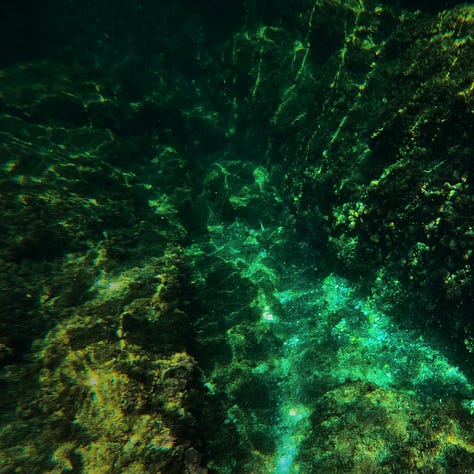
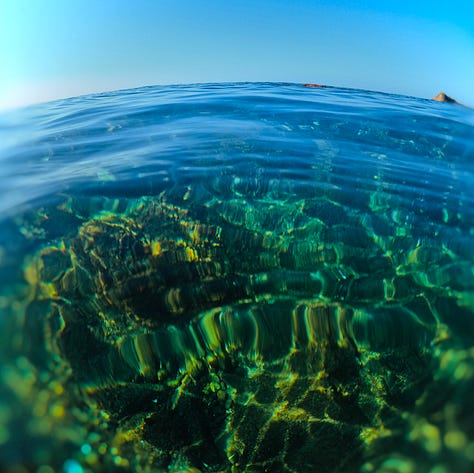
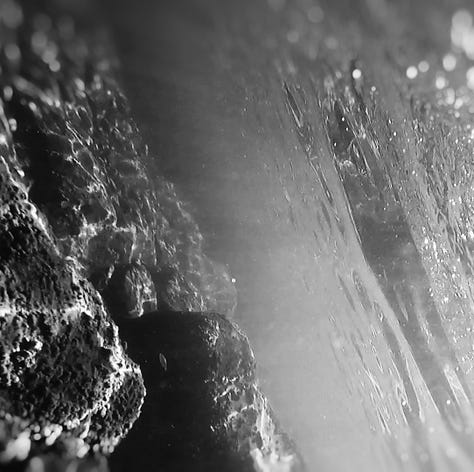
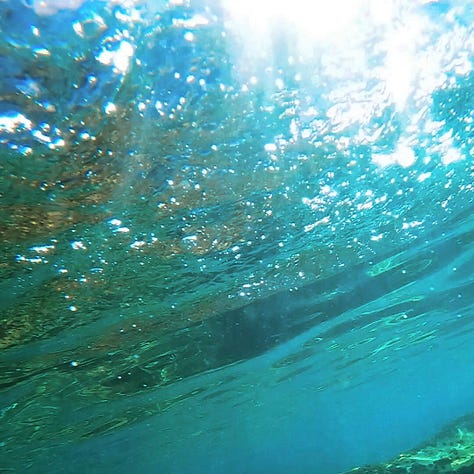
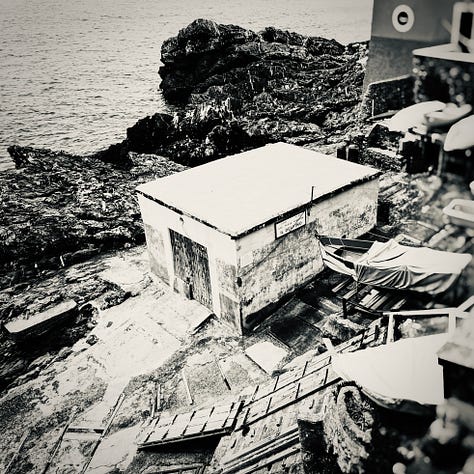
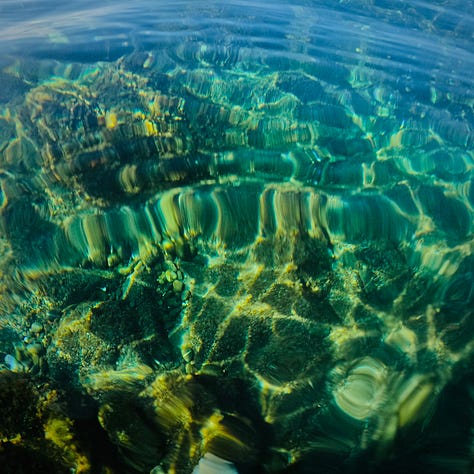
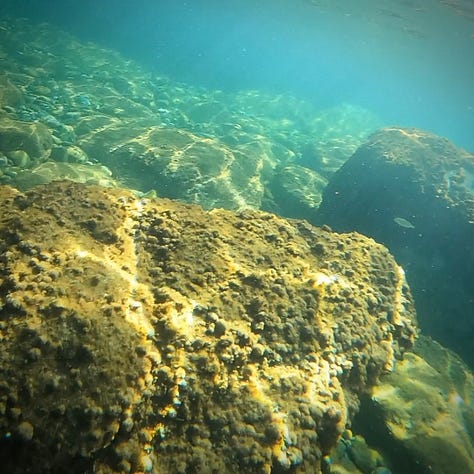
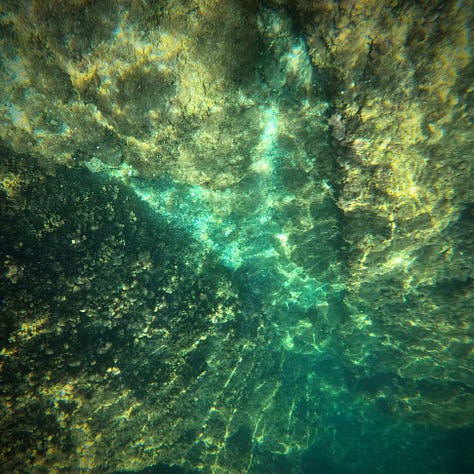
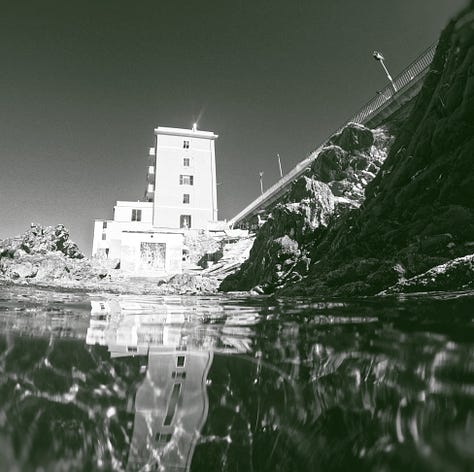
Connect:

